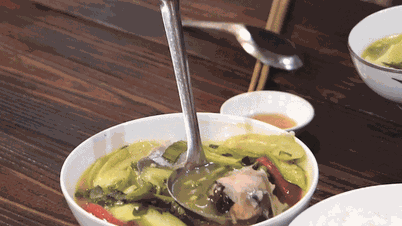Transient ischemic attack is considered a warning factor for stroke that needs to be noted with a 3 - 4% annual risk, 11% risk in the 7 days after the transient ischemic attack and 24 - 29% risk in the next 5 years.
Among patients who present to the emergency department for ischemic stroke, 7-40% report having had a previous TIA. Many strokes can be prevented by recognizing the signs of a TIA and treating underlying risk factors, so prevention is extremely important.
Causes of transient ischemic attacks
A transient ischemic attack usually lasts a few minutes. Most signs and symptoms disappear within an hour, although rarely symptoms can last up to 24 hours.
A transient ischemic attack has the same origin as an ischemic stroke, the most common type of stroke. In an ischemic stroke, a blood clot blocks the blood supply to part of the brain. In a transient ischemic attack, unlike a stroke, the blockage is short-lived and there is no permanent damage.
- The underlying cause of transient ischemic attacks is usually a buildup of fatty deposits containing cholesterol, called atherosclerotic plaques, in an artery or one of the branches that supply oxygen and nutrients to the brain.
- Plaque can reduce blood flow through an artery or lead to the development of a blood clot. A blood clot that travels to an artery supplying blood to the brain from another part of the body, most commonly from the heart, can also cause a transient ischemic attack.
Risk factors for transient ischemic attack
Some risk factors for transient ischemic attacks and strokes cannot be changed. Others can be controlled.
Risk factors that patients cannot change include:
Patients with family history: The risk of stroke may be greater if one of the family members has had a transient ischemic attack or stroke.
Family history: If someone in the family has had a transient ischemic attack or stroke, other family members will have a higher risk of developing this disease than normal people.
Old age: After 50 years old, the risk of transient cerebral ischemia will increase, accordingly, underlying diseases with the risk of causing stroke will also change rapidly such as high blood pressure, diabetes, cardiovascular disease...
History of previous transient ischemic attack: A person who has experienced a transient ischemic attack will have a high risk of recurrence. At the same time, this subject will have a higher risk of stroke than normal people.
Sickle cell disease: Sickle-shaped blood cells carry less oxygen and also tend to get stuck in artery walls, blocking blood flow to the brain, causing transient ischemic attacks.

Transient ischemic attack is considered a warning factor for stroke.
How to prevent transient ischemic attack?
Knowing your risk factors, living a healthy lifestyle, and getting regular medical checkups are the best things you can do to prevent a TIA.
- Don't smoke: Quitting smoking will reduce your risk of transient ischemic attack or stroke.
- Limit cholesterol and fat: Cutting down on cholesterol and fat, especially saturated fat and trans fat, in your diet can reduce plaque buildup in your arteries.
- Eat plenty of fruits and vegetables: These foods contain nutrients such as potassium, folate and antioxidants, which may protect against transient ischemic attacks or strokes.
- Limit sodium: If you have high blood pressure, avoiding salty foods and not adding salt to your food can lower your blood pressure, excess sodium can increase blood pressure in people who are sensitive to sodium.
- Exercise regularly: If you have high blood pressure, regular exercise is one of the few ways to help lower your blood pressure without medication.
- Limit alcohol: Drink alcohol in moderation. The recommended limit is no more than one drink per day for women and two drinks per day for men.
- Maintain a healthy weight: Being overweight contributes to other risk factors, such as high blood pressure, heart disease, and diabetes. Losing weight through diet and exercise can lower your blood pressure and improve your cholesterol levels.
- Do not use drugs and use drugs such as cocaine that are associated with an increased risk of transient ischemic attack or stroke without a doctor's prescription.
- Diabetes control: If you have diabetes, you need to control diabetes and high blood pressure with diet, exercise, weight control and medication when necessary.
Source




































































































Comment (0)